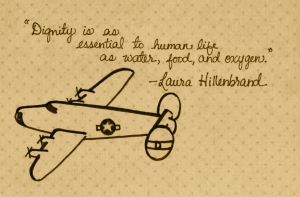I Was Here is quite a departure from Gayle Forman’s usual novels — it’s rather dark and morbid, yet there is hope and strength in its message.
Cody discovers that her best friend has committed suicide. It was planned perfectly: she packed her things within her dorm, she rented a motel and left a hefty tip for the maid, she bought some super-strength poison that was guaranteed to work, and she sent her family a time-delayed email letting them know what she did. After looking at the message with Meg’s little brother, Cody realizes that letter is worded strangely, and wonders if Meg was actually covering up for someone else… someone who may have pushed her over the edge.
In her efforts to discover why her best friend would do such a thing without her having the slightest clue, Cody rehashes the months Meg was away at college — she had so much going for her: charisma, intelligence, a way with people, and knowing what buttons to push to make things happen… Meg was a tour de force to be reckoned with… so why would she think it was all hopeless? Why she do such a thing without confiding in her best friend? As Cody digs through Meg’s emails, she enlists the help of her distant roommate to hack and track down all kinds in information in not-exactly-legal ways, questions other people in Meg’s life, and meets the Tragic Guitar Hero: Ben McAllister.
For Cody this is quite a change: heading out of her small town, talking to people she normally wouldn’t, questioning people’s motives in the search for truth, confronting her own weaknesses and fears, and coming to terms with her own insecurities about life and where she’s headed. Since they met in Kindergarten and became two peas in a pod, the idea was: Meg and Cody forever. But now it’s just Cody… asking the questions, confronting strangers, making new friends, learning to rely on others for help. Her search into Meg’s death is truly what defines Cody’s strength and will to live.
“Life can be hard and beautiful and messy, but hopefully, it will be long. If it is, you will see that it’s unpredictable, and that the dark periods come, but they abate — sometimes with a lot of support — and the tunnel widens, allowing the sun back in. If you’re in the dark, it might feel like you will always be in there. Fumbling. Alone. But you won’t — and you’re not. There are people out there to help you find the light.”
Cody’s all-consuming obsession with Meg’s death might seem morbid, but what else would be expected from a person who loved her friend? She needs answers… and in her own way, finds them.
Gayle Forman touches upon something not too many people talk about: depression, suicide, loss… but the story is mostly about hope, and resilience, and reaching out. Though there are dark moments, life’s unpredictability means there’s also a chance for light at the end of the tunnel… and that in confiding in others, we may find the understanding and support we all need to keep going.







